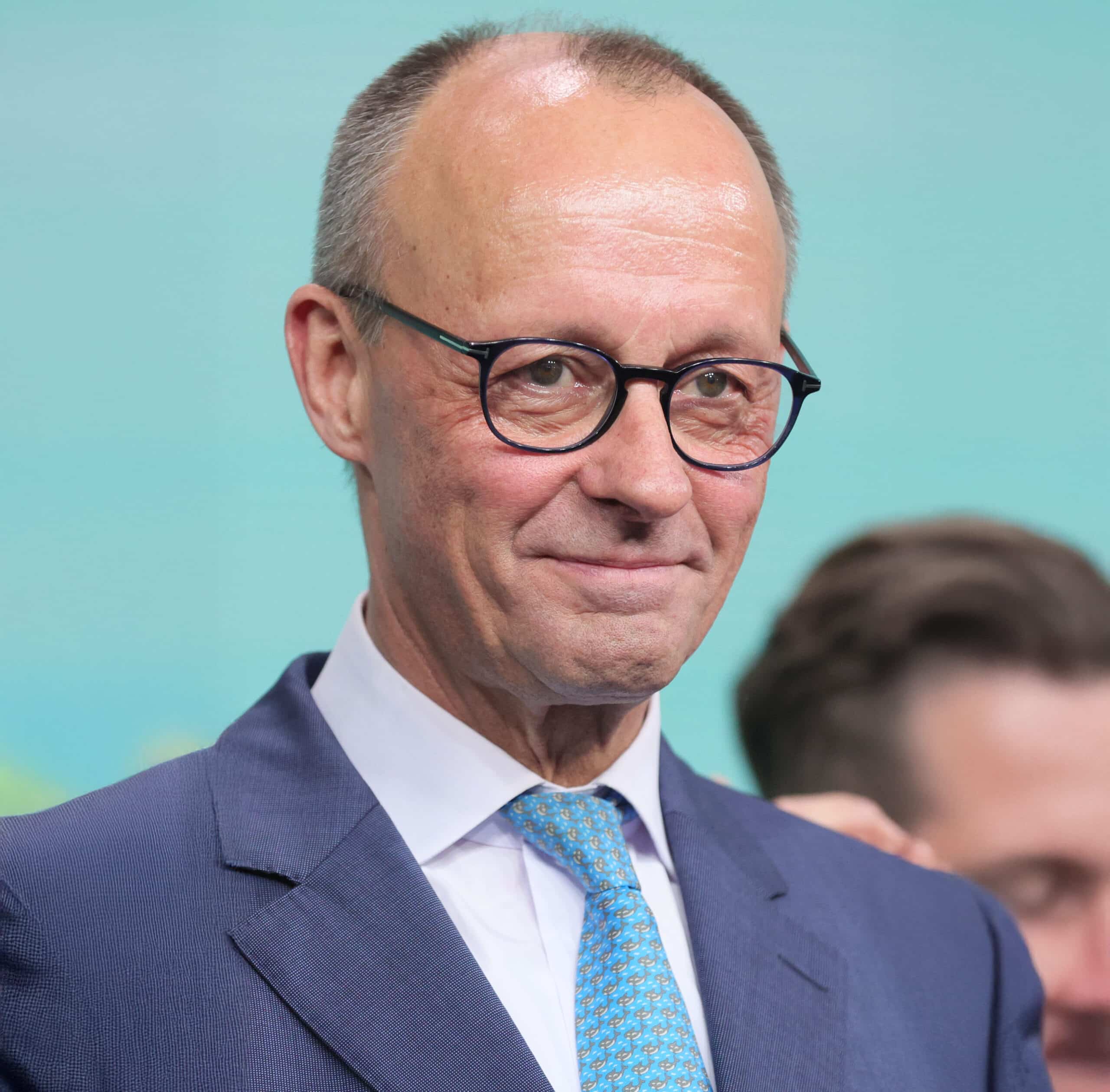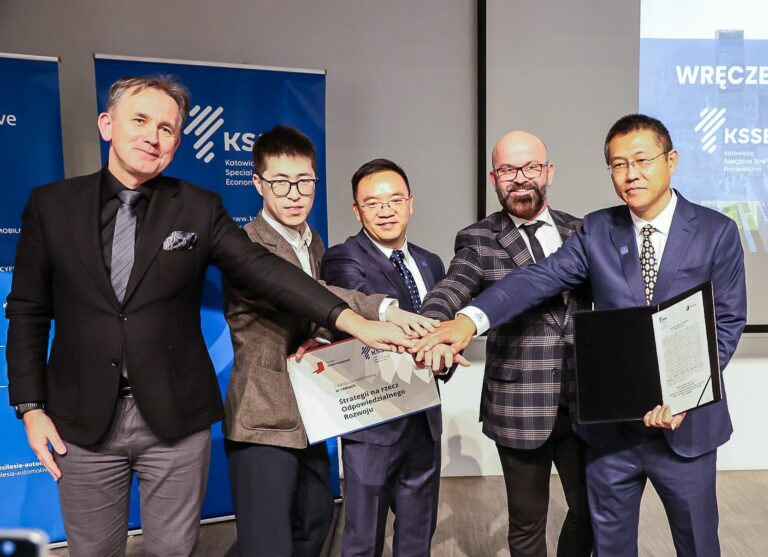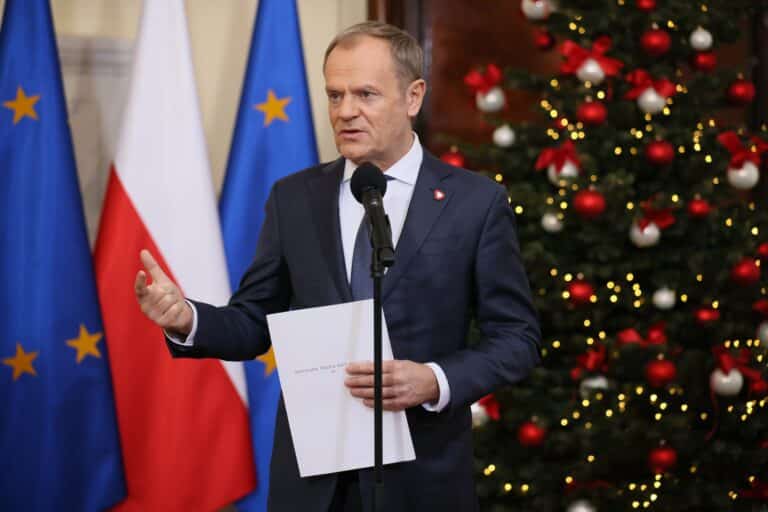Growth, Investment, and Traffic Jams After German Elections
A more stable CDU-led coalition government in Germany could foster investment and growth in Poland, according to the German Chamber of Commerce, but border jams can’t be ruled out.
As Germany’s victorious Christian Democrat leader Friedrich Merz knuckles down to negotiations on forming a bi-partite coalition with defeated arch-rivals, the Social Democrats, neighbours in Poland are cautiously optimistic.
On election night, Merz directly referred to both Poland and France as countries he would strive to improve relations with and later told Bild magazine that his first foreign visits would be to Paris and Warsaw.
Merz’s right-of-centre CDU/CSU bloc garnered 28.5% of the vote and 208 seats in the Bundestag in the early elections on 28 February, securing victory over the far-right AfD party, which received 20.8% and 150 seats, and the Social Democrats, who secured 16.4% and 120 seats.
Poland’s Premier Donald Tusk tweeted his congratulations to the Christian Democrat leader on his victory, saying it was not easy to defeat populists—something he “knows something about,” referring to the broad coalition he gathered in the October 2023 elections to beat the previous Law and Justice Party government, which had received the highest support in the poll.
CDU Rules Out AfD Coalition
In Merz’s case, working with the Nazi-tinged nationalist party, the AfD, was ruled out, and the former banker is sitting down with Social Democrats leader Olaf Scholz to hammer out a deal “by Easter.” The former SPD chancellor’s own three-way government coalition with the Greens and free-market FDP collapsed in December.
“With a two-way coalition rather than a three-way one as we had till now, there is more hope for a stable government,” Lars Gutheil, the director of the Polish-German Chamber of Commerce (AHK), told Poland Weekly.
Warsaw’s Concerns Over German Inaction
The failure of the Scholz government to reach agreements on key policies such as energy, immigration, and security had been met with exasperation in Poland, particularly in light of the challenges exacerbated by the hot war in Ukraine and the hybrid war waged by Russia on Poland’s borders.
Moreover, the recession in Germany, now stretching into its third year, has impacted Poland’s economy. Germany is Poland’s largest export and import partner and one of its largest foreign investors. However, the decline in orders for automotive parts from Polish suppliers to Volkswagen, BMW, and Mercedes factories has further strained Poland’s economic outlook.
Hope for Investment
“The CDU is traditionally known for its focus on investment and innovation, providing a stronger impetus for economic growth,” Dr. Gutheil said. “Their manifesto promised to reduce red tape, which can only be good for trade with Poland. SMEs in particular complain about the huge number of forms they have to fill out. The German supply chain act was even more stringent than EU Green Deal legislation and was highly criticised by businesses. Merz says he wants business to take centre stage and has proposed removing two regulations for every new one introduced to simplify bureaucracy.”
The German trade body’s director noted that while the Scholz government was supportive of Ukraine, the CDU is more aligned with Poland on certain issues, such as providing Taurus 500-km-range missiles to Zelenskyy’s forces. Weapons like these could make a difference on Ukraine’s eastern and southern fronts.
And while Gutheil described the future chancellor, a former director at American investment behemoth BlackRock, as “the most pro-US politician” on the German political scene, he emphasised that Merz has quickly realigned himself towards Europe after recent shifts in sentiment towards the EU, ultimately calling for European independence from the United States.
Border Hold-Ups
One potential challenge for Poland could be a continuation (or escalation) of stricter border checks under a Merz chancellorship, in line with his campaign promises. “The new government will continue the migration strategy of the previous government, with the tightening of its borders continuing to cause tensions with Poland,” sociology professor Gavin Rae from Kozminski University told Poland Weekly.
Lars Gutheil did not rule out the possibility of increased controls along the Oder-Neisse line, which could impact Poland’s growing cross-border logistics operations. However, he stated that the situation remains uncertain and that “we can only wait and see.”
A Less Rosy Outlook
Not everyone in Poland is optimistic about the black-and-red grand coalition, as the CDU/CSU and SPD have historically been uneasy partners. An analyst report from Poland’s Bank Pekao SA, published on the day of the election results, suggested that the alliance could be fragile. It noted that if hard-line members of the SPD were to block Merz’s proposed immigration reforms aimed at repatriating illegal asylum seekers, tensions within the coalition could quickly escalate.
If the Christian Democrats were to struggle with internal divisions, it could play into the hands of the AfD. The far-right party’s leader claimed on election night that the CDU/CSU had stolen their agenda and would be guilty of “election fraud” if they failed to follow through on tough migration policies. The AfD vowed to hold them accountable and attract disillusioned voters.
To avoid electoral backlash, the CDU might ultimately be tempted to dissolve the coalition and attempt to govern with a Bundestag minority, relying on tacit AfD support. Such a scenario would likely spook financial markets, especially at a time when ESG-focused investment decisions are becoming increasingly significant. Additionally, AfD pressure to reduce military aid to Ukraine could weaken Poland’s efforts to support its embattled neighbour.
Boost for Populists and the Hard Right
Professor Rae sees lessons in Germany’s hard-fought election battle for Poland’s upcoming presidential race. “The success of the far-right AfD is likely to give a boost to Poland’s far-right Konfederacja party,” he said. “The AfD has even courted the votes of Poles living in Germany, attempting to create a division between them and other migrants from Turkey and the Middle East. The relative success of Die Linke also shows that there is still a constituency in Europe for far-left policies. This may encourage the Razem candidate, Adrian Zandberg, to shift his campaign further to the left.”







